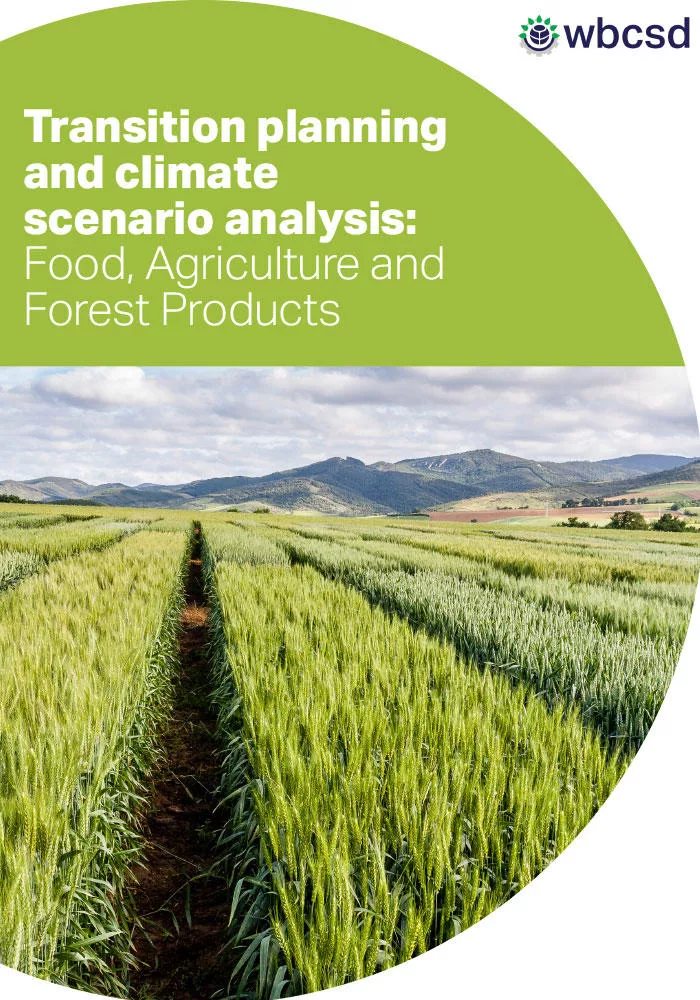
Published
13 February, 2023Type
PublicationAs companies adopt more rigorous approaches to respond to climate change and report on their actions, effective transition planning has become an important strategic capability relying on scenario analysis as a core element to inform planning.
Scenario analysis is a vital tool for understanding how companies might perform under different plausible climate futures, to better assess risks and opportunities, build transition plans and report in line with recommendations from the Task Force on Climate-related Financial Disclosures (TCFD). WBCSD convened 13 leading Food, Agriculture and Forest Products companies to develop a set of new climate transition scenarios for these sectors. The scenarios are available through an online Climate Scenario Tool enabling users to navigate specific variables (e.g., commodities and regions) and compare, visualize and download output data (e.g., production, prices and emissions).
The Climate Scenario Tool is accompanied by a Scenario Analysis and Application Guide describing use cases for the scenarios and how scenario analysis can inform business decisions, strategies and activities related to climate transition.
As a companion to the Scenario Analysis and Application Guide, Transition planning and climate scenario analysis: Food, Agriculture and Forest Products presents learnings from the development of the Climate Scenario Tool and its application to transition planning, including the development of climate transition plans and how scenario analysis can be used to inform them. The guide provides high-level perspectives on requirements and challenges to develop transition plans and key components that should be included in their design and implementation. The target audience for this guide is primarily business functions and stakeholders looking to build their capabilities with transition planning, particularly supported by scenario analysis.
